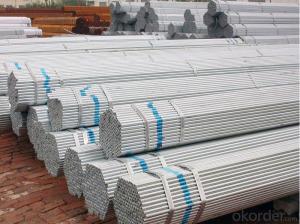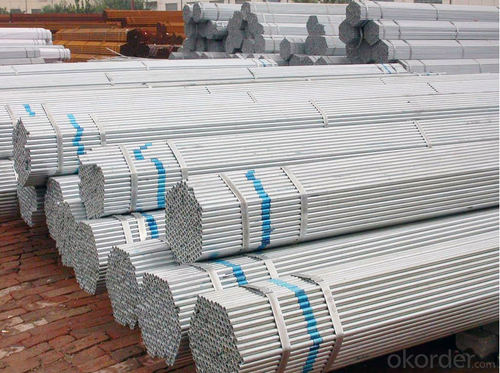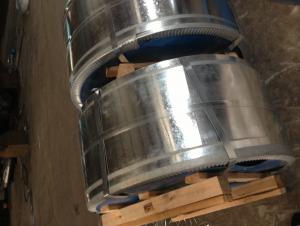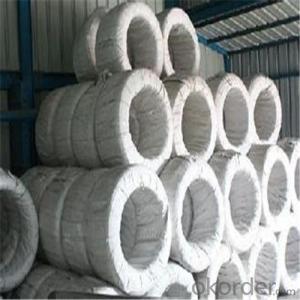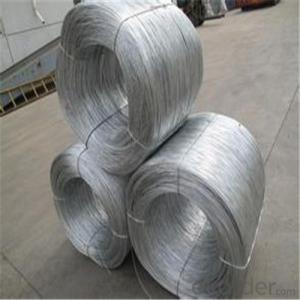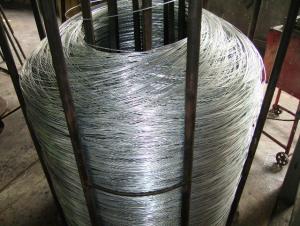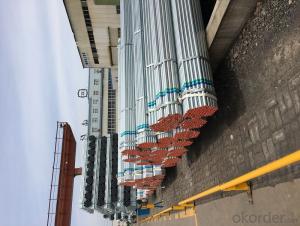hot dip galvanized steel pipe schedule 40
- Loading Port:
- Tianjin
- Payment Terms:
- TT OR LC
- Min Order Qty:
- 25 m.t.
- Supply Capability:
- 60000 m.t./month
OKorder Service Pledge
OKorder Financial Service
You Might Also Like
Specification
schedule 40 galvanized steel pipe are widely used in construction, steel structure, machinery etc. we can produce as per international standards. Our pipes are popluar among customers in the world for their qualith and reasonable price.
For further more informations about our steel pipe products, please see as follow table
Commodity | schedule 40 galvanized steel pipe | ||
| Shape | Round Pipe | Square Pipe | Rectangular pipe |
| Dimensions | O.D 1/4''~52'' | 10*10~1200*1200mm | 10*20~1000*1200mm |
| Wall thickness | 0.6~60mm | 0.6~40mm | 0.6~40mm |
| Length | Normal 6 meters long or Random lenght | ||
| Tolerance | O.D: +/- 5%, Thickness: +/- 5%; Length: +/-10% | ||
| Producing standard | Round pipe: GB/T3091, BS1387-1987, ASTM A53, DIN2440, EN39-2001. Square/Rectangular tube: GB/T6728-2002, ASTM A500 Gr A B C, JIS G3466 etc | ||
| Steel Grade | Carbon steel: Q195, Q215,Q235,Q345;SS400, STK400, STK490, ASTM A500, A53, ST37, ST35 etc. | ||
| Surface treatment | Hot dip galvanized, painting, oil, plastic powder coating, plain/beveled ends or threaded with sockets/coupling and plastic caps etc. | ||
| Inspections | With hydraulic testing, eddy current and infrared test etc | ||
| Usages | Scaffolding pipe, Structure pipe, Fence/Door pipe, Furniture, Low pressure fluid pipe for water oil or gas, Boiler pipe | ||
| Package | In bundles by steel strips, waterproof woven cloth with 7 slats, then pack into 20' or 40' container, in bulk or as per your requirements | ||
| Lead time | Within 20 days or as per your requirements | ||
| Others | 1:Special design available according to requirement. 2:Pipe can be painting. 3:All production process are under the ISO9001:2000 strictly. | ||
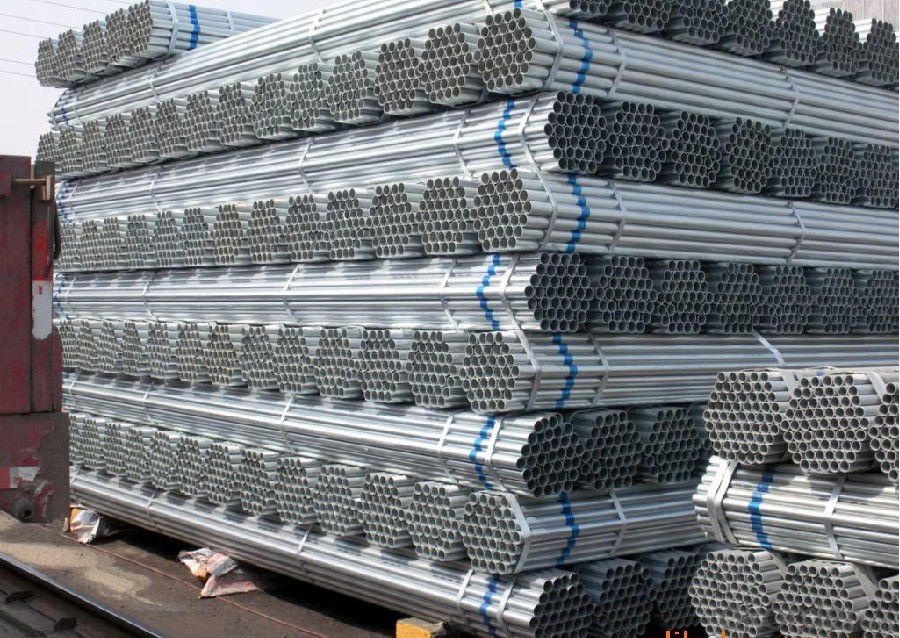
- Q: What type of steel pipe dance is used in general?
- The steel pipe fittings used in the pipe dance are made of smooth surface material, usually chrome or polished by steel or iron.
- Q: How are steel pipes used in the construction of telecommunications towers?
- Steel pipes are used in the construction of telecommunications towers as they provide structural support and stability. They are used as the main framework for the tower, forming the vertical columns, horizontal bracing, and diagonal supports. These pipes are capable of withstanding heavy loads, high winds, and other environmental factors, ensuring the tower's durability and longevity. Additionally, steel pipes allow for easy installation and maintenance of antennas, cables, and other telecommunications equipment.
- Q: What is the difference between black and galvanized steel pipes?
- The main difference between black and galvanized steel pipes lies in their coating. Black steel pipes are untreated and have a dark, uncoated appearance, while galvanized steel pipes are coated with a layer of zinc to prevent corrosion. This zinc coating on galvanized pipes helps protect against rust and extends their lifespan, making them suitable for outdoor and exposed applications. Black steel pipes, on the other hand, are typically used for indoor applications and are often painted or coated after installation to prevent rusting.
- Q: What are the different coating options for steel pipes?
- There are several coating options available for steel pipes, each serving a specific purpose and providing unique benefits. Some of the most common coating options for steel pipes include: 1. Fusion Bonded Epoxy (FBE) Coating: FBE coating is a popular choice for steel pipes used in various industries. It provides excellent corrosion resistance, impact resistance, and adhesion to the pipe surface. FBE coating is typically applied through a heat-induced chemical reaction, creating a durable and protective layer. 2. Polyethylene (PE) Coating: PE coating is commonly used for underground steel pipes, as it provides superior resistance against corrosion, abrasion, and chemicals. This coating is applied using extrusion methods and forms a seamless layer over the steel pipe, preventing any moisture penetration. 3. Polyurethane (PU) Coating: PU coating is known for its exceptional resistance to abrasion, chemicals, and harsh environmental conditions. It is commonly used for steel pipes exposed to extreme temperatures or in aggressive environments. PU coating can be applied in multiple layers to provide enhanced protection. 4. Coal Tar Enamel (CTE) Coating: CTE coating is a traditional option for steel pipes that require protection against corrosion. It is a thick, black coating that provides excellent resistance to water, soil, and atmospheric corrosion. CTE coating is typically applied using a hot-applied coating method. 5. Zinc Coating: Zinc coating, also known as galvanization, is a widely used protective coating for steel pipes. It involves applying a layer of zinc to the pipe surface, creating a barrier against corrosion. Zinc coating can be applied through hot-dip galvanization or electro-galvanization methods. 6. Concrete Coating: Concrete coating is often used for steel pipes in underground or submerged applications. It provides a robust protective layer against corrosion, abrasion, and mechanical damage. Concrete coating is typically applied as a cement mortar or a reinforced concrete layer. These are just some of the coating options available for steel pipes. The choice of coating will depend on factors such as the intended application, environmental conditions, and required durability. It is essential to select the appropriate coating to ensure the longevity and performance of the steel pipes in various industries.
- Q: How are steel pipes used in the manufacturing of renewable energy systems?
- Steel pipes are extensively used in the manufacturing of renewable energy systems for various purposes. They are commonly used as structural components, providing strength and stability to wind turbines, solar panel supports, and hydroelectric power systems. Steel pipes are also utilized for transporting fluids such as water, steam, or gases in energy generation processes. Furthermore, they are essential in the construction of geothermal energy systems, where they are employed to create underground heat exchangers and piping networks. Overall, steel pipes play a crucial role in the efficient and reliable functioning of renewable energy systems.
- Q: How are steel pipes protected from corrosion?
- Steel pipes are protected from corrosion through various methods such as applying protective coatings, using sacrificial anodes, or employing cathodic protection systems.
- Q: How are steel pipes insulated for thermal efficiency?
- Steel pipes are insulated for thermal efficiency by applying a layer of insulating material, such as mineral wool or foam, around the pipe. This insulation helps to reduce heat transfer and prevent energy loss, ensuring that the pipes maintain the desired temperature and improve overall thermal efficiency.
- Q: What are the environmental impacts of steel pipe production and disposal?
- The production and disposal of steel pipes have significant environmental impacts. Firstly, the production of steel pipes requires the extraction of raw materials such as iron ore, coal, and limestone. This extraction process leads to habitat destruction, deforestation, and soil erosion. Additionally, mining and processing these materials require a considerable amount of energy, often derived from fossil fuels, contributing to greenhouse gas emissions and air pollution. The manufacturing process itself involves various stages, including melting, casting, rolling, and coating, all of which require substantial energy inputs and emit significant amounts of carbon dioxide and other greenhouse gases. Moreover, the production of steel pipes involves the use of chemicals and additives that can be harmful to the environment if not managed properly. Furthermore, during the disposal of steel pipes, if not recycled or properly managed, they can end up in landfills, contributing to waste accumulation and taking up valuable space. Steel is generally non-biodegradable and can take hundreds of years to decompose. When steel pipes are dumped in landfills, they can release toxic substances and heavy metals, which can contaminate soil and groundwater. However, it is important to note that steel pipes are highly recyclable, and recycling them significantly reduces the environmental impact. Recycling steel pipes helps conserve natural resources, reduces energy consumption, and lowers greenhouse gas emissions. Additionally, using recycled steel in the production of new pipes requires less energy and results in fewer emissions compared to using virgin materials. To minimize the environmental impacts of steel pipe production and disposal, it is crucial to promote sustainable practices throughout the entire lifecycle of the product. This includes reducing energy consumption, utilizing renewable energy sources, implementing proper waste management strategies, and encouraging the recycling and reuse of steel pipes.
- Q: How are steel pipes manufactured?
- Steel pipes are typically manufactured through a process called seamless or welded pipe manufacturing. In the seamless process, a solid steel billet is heated and pierced to create a hollow tube, which is then stretched and rolled to the desired size and shape. In the welded process, steel sheets are formed into a pipe shape and welded along the seam. These pipes are then further processed and finished before use in various industries.
- Q: What is the difference between steel pipes and ductile iron pipes?
- Steel pipes and ductile iron pipes are both commonly used for various applications in the construction industry, but they differ in their composition and properties. Steel pipes are primarily made from an alloy of iron and carbon, with small amounts of other elements. They are known for their high tensile strength and durability, making them suitable for transporting fluids and gases under high pressure. Steel pipes are more resistant to corrosion than ductile iron pipes, and they can withstand extreme temperatures and environmental conditions. On the other hand, ductile iron pipes are made from an alloy of iron, carbon, and small amounts of other elements like silicon and magnesium. These pipes are characterized by their high strength, impact resistance, and flexibility. Ductile iron pipes are often used for water and sewage transportation due to their corrosion resistance and ability to withstand ground movement and heavy loads. In summary, steel pipes are known for their strength, durability, and corrosion resistance, while ductile iron pipes offer greater flexibility and impact resistance. The choice between the two depends on the specific application requirements and environmental conditions.
Send your message to us
hot dip galvanized steel pipe schedule 40
- Loading Port:
- Tianjin
- Payment Terms:
- TT OR LC
- Min Order Qty:
- 25 m.t.
- Supply Capability:
- 60000 m.t./month
OKorder Service Pledge
OKorder Financial Service
Similar products
Hot products
Hot Searches
Related keywords
